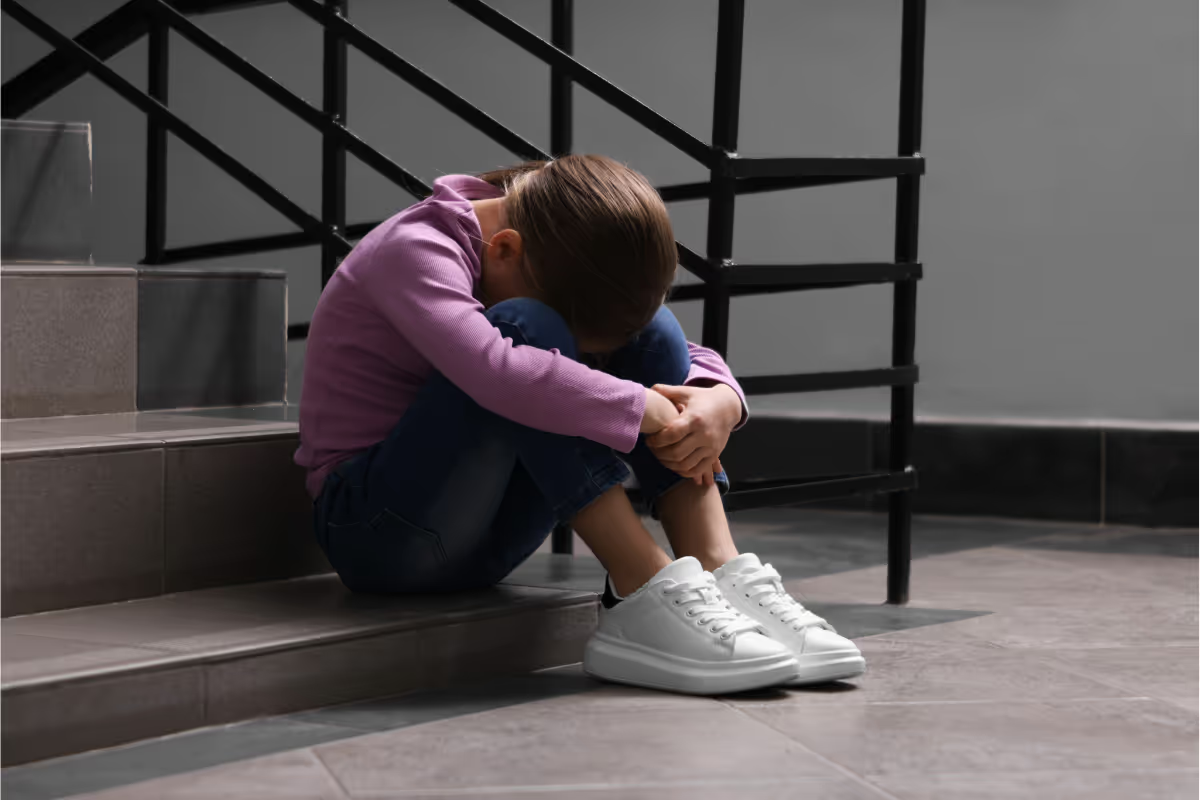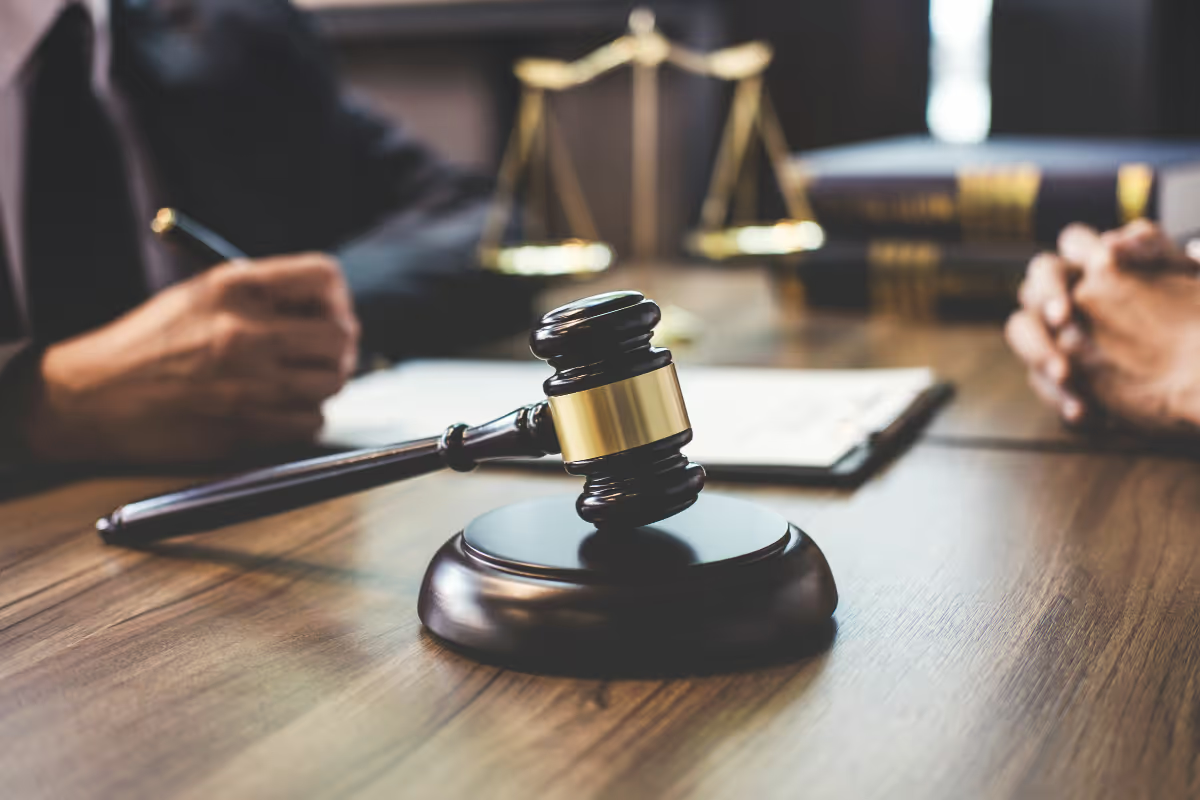ICE Arrests Are Increasing. Detained or facing deportation? We can help with bond hearings and removal defense.
ICE Arrests Are Increasing.
Learn More
Facing a child abuse charge can be overwhelming and frightening. In California, accusations of harming or endangering a minor carry serious criminal penalties and can trigger investigations by Child Protective Services. Even a misunderstanding or well-intentioned discipline can be misconstrued as abuse. You need a defense team that moves swiftly to protect your rights, your family relationships, and your future.
It is crucial to consult an experienced criminal defense attorney to navigate the complexities of your case and build a strong defense strategy.
At Perliss Law Firm, we handle child abuse cases with sensitivity and diligence. We offer free, confidential consultations in English and Mandarin to discuss the charges against you and outline your defense options. Our attorneys respond quickly to subpoenas and CPS inquiries, challenge improper evidence, and negotiate for reduced or dismissed charges. Contact Perliss Law Firm today for a free consultation to safeguard your reputation.










Child abuse in California covers any act or omission that causes or threatens serious harm to a minor, and certain actions may qualify as criminal child abuse. The state defines several distinct offenses under the Penal Code, each carrying its own legal elements and potential penalties.
Understanding these definitions is crucial in these cases, as it helps in navigating the complexities of the charges and building a robust defense strategy.
Any non-accidental infliction of physical injury such as hitting, shaking or striking a child, or using excessive or unlawful restraints.
Verbal threats, constant criticism, intimidation or isolation that causes mental suffering or interferes with a child’s emotional development.
Failing to provide adequate food, shelter, medical care or supervision when legally obligated to do so, resulting in harm or risk of harm.
Exposing a child to dangerous situations or failing to protect them from known hazards, even if no physical harm has yet occurred.
Any sexual act with a minor, including molestation, exploitation or furnishing harmful material.
Prosecutors must prove each element of the charged offense beyond a reasonable doubt. This means they must show not only that the harm occurred, but also that you acted with the required intent or reckless disregard for the child’s safety. A strong defense begins by closely examining these legal definitions and identifying any gaps in the prosecution’s evidence.
Penalties for a child abuse conviction in California depend on the specific offense and whether it is charged as a misdemeanor or a felony. Convictions can lead to jail or prison time, fines, mandatory counseling, and loss of custody or visitation rights. In addition, a criminal record can affect employment, professional licensing, and immigration status.
A conviction can lead to significant penalties, including jail time.
A conviction can result in up to one year in county jail and fines of up to one thousand dollars. Mandatory counseling or parenting classes may also be required.
Certain child abuse crimes may be charged as either a misdemeanor or a felony. Prosecutors decide the charge based on factors such as the severity of the harm, your intent, and any prior convictions.
Felony convictions carry between two and four years in state prison for most offenses, with some aggravated cases resulting in longer sentences. Penalties can include up to six years in prison. Fines can reach ten thousand dollars or more.
Use of a weapon, great bodily injury, or a position of trust (such as a caregiver or parent) can add additional years to the base sentence.
Courts may issue restraining orders to keep you away from the child. A conviction can also lead to loss of parental rights or supervised visitation requirements.
If you are a mandated reporter, such as a teacher or healthcare worker, you may face additional professional sanctions for failing to report suspected abuse.
An experienced defense attorney can challenge the evidence, negotiate reductions to lesser charges, and advocate for probation or alternative sentencing programs to avoid the harshest penalties.
When facing child abuse charges, experienced defense attorneys can:
Carefully review the prosecution's evidence and identify weaknesses
Negotiate with prosecutors to reduce or dismiss charges
Strive for probation or alternative sentencing to avoid the harshest possible punishment

In California, child abuse cases encompass a variety of criminal charges, each with distinct definitions and legal requirements in the criminal code. Understanding the specific charges you face can help your defense attorney develop a more precise defense based on the prosecutor's strategy and maximize your rights.
This charge applies when you willfully inflict physical injury on a child, such as bruises or cuts. This is a serious criminal offense. The prosecution must prove you acted with a specific intent to harm or with reckless disregard for the child’s safety.
This crime covers situations in which a caregiver’s omission or act causes physical or mental suffering. It applies whether the harm is intentional or results from gross negligence, such as leaving a child unattended in a dangerous situation.
You can be charged if you create or permit a condition that endangers a child’s health or safety, even if no injury occurred. Examples include exposing a child to domestic violence or hazardous environments.
This felony offense involves sexual contact with a child under 14 years old. Conviction requires proof of intent to arouse or gratify sexual desire.
This charge applies when you arrange, promote, or participate in the sexual exploitation of a minor, including child pornography offenses.
Mandated reporters, such as teachers or healthcare workers, can face criminal penalties if they knowingly fail to report suspected abuse to authorities.
Each of these charges carries distinct penalties and requires a targeted defense. Your attorney will analyze police reports, medical evidence, and witness statements to identify weaknesses in the prosecution’s case and develop the strongest possible defense.

Seeking legal counsel immediately is crucial. Experienced criminal defense attorneys can guide you through the complexities of your case, help formulate a strong defense, and discuss potential outcomes.
First, remain calm and avoid making any statements until you have spoken with a lawyer. Anything you say to law enforcement can be used against you in court. Next, request bail promptly and prepare to present evidence of stable community ties, such as employment, family relationships, and lack of prior record, to secure release pending trial.
Politely inform officers you will not answer questions without an attorney present.
Ask for a defense lawyer immediately and avoid discussing details with investigators or social workers.
Provide proof of community stability and propose reasonable bail conditions to gain pretrial release.
Gather any documentation or records related to the alleged incident, including communications, medical reports, or witness contacts.
Do not post or share information about your case online, as prosecutors may use public statements as evidence.
Acting quickly on these steps helps safeguard your legal rights, maintain access to your child, and build a strong defense from the outset.
A strong defense against child abuse charges requires a criminal defense lawyer to carefully examine the prosecution’s evidence and assert every available legal protection. Your attorney will develop a tailored strategy based on the specific allegations, evidence and applicable law.
A strong attorney-client relationship is crucial in these cases, as it ensures that the lawyer fully understands and advocates for the unique circumstances of each client.
Medical records and expert evaluations can be used to show that any injuries were accidental, self-inflicted or caused by a preexisting condition rather than intentional abuse.
Inconsistent statements, bias or lack of direct observation may undermine the reliability of witness testimony. Cross-examination seeks to expose these weaknesses.
California law permits reasonable corrective actions. Establishing that physical contact or verbal reprimands were appropriate and intended for discipline rather than harm can negate criminal intent.
Any failure by Child Protective Services to follow statutory protocols, such as improper interviewing of minors or failure to secure true consent, can warrant suppression of collected evidence.
Many child abuse statutes require intentional or reckless conduct. Proving that the defendant acted without malice or with a lawful purpose can defeat the mens rea element.
Aggravating circumstances, such as involvement of minors, use of a weapon, or organized crime activities, can lead to enhanced sentencing under California law.
In suitable cases, negotiating diversion, probation or counseling programs can avoid a felony conviction and preserve family unity.
Motions to exclude statements obtained without proper Miranda warnings or evidence gathered in violation of privacy rights help narrow the prosecution’s case.
Child psychologists, pediatricians and forensic specialists provide context on child behavior, injury causation and the reliability of statements, bolstering the defense narrative.
Combining these tactics allows an experienced defense attorney to create reasonable doubt, reduce charges, or secure alternative outcomes that protect your freedom and parental rights.

We analyze the police reports, medical records, and CPS findings to identify weaknesses and plan your defense.
Our team works with private investigators to interview witnesses, review surveillance footage, and gather any exculpatory evidence.
We retain medical professionals, child psychologists, and forensic specialists to challenge the prosecution’s evidence and support your version of events. Having a former deputy district attorney on our team provides a strategic advantage in navigating complex legal issues.
We file motions to suppress improperly obtained statements, dismiss charges for lack of probable cause, and exclude evidence collected in violation of your rights.
When appropriate, we negotiate with prosecutors to seek reduced charges, diversion programs, or alternative resolutions that preserve your freedom and family unity.
If your case proceeds to trial, our attorneys present compelling opening statements, cross-examine witnesses effectively, and deliver persuasive closing arguments.
We work to maintain your custody and visitation rights throughout the criminal process, coordinating with family law specialists when necessary.
Fluent in English and Mandarin, we ensure you fully understand every development and decision in your defense.
With Perliss Law Firm on your side, you gain a dedicated legal partner committed to achieving the best possible outcome and protecting your relationship with your child.
Yes. You can request visitation rights at your bail hearing and throughout the case. Your attorney will advocate for reasonable contact arrangements to protect your parental bond.
Criminal defense and CPS proceedings run on separate tracks. A defense attorney can coordinate with CPS to present evidence that addresses their concerns and seek reunification services if needed. The prosecutor will review the evidence and decide on the appropriate charges based on the specifics of the case.
A conviction can trigger professional discipline depending on your field. Early intervention may allow you to negotiate diversion or reduced charges that avoid automatic reporting to licensing boards.
Timelines vary with case complexity. Misdemeanor cases often resolve in 6 to 12 months, while felony trials and appeals can extend beyond 18 months. Your attorney will keep you informed at every stage.
False allegations often stem from misunderstandings or malicious intent. A comprehensive defense challenges evidence, discredits unreliable witnesses, and may involve expert testimony to prove your innocence. False allegations can have severe consequences, significantly impacting both your personal and professional life.
Yes. You have the right to legal representation during any CPS interview. Politely inform investigators that you will only answer questions in the presence of your attorney.
Lack of visible or documented injuries can weaken the prosecution’s case. Your attorney will highlight inconsistencies and question whether the alleged harm ever occurred.
A prior record can influence bail decisions and sentencing, but it does not determine guilt. Your lawyer can argue for leniency or diversion based on the age and relevance of past convictions.
Yes. Prosecutors often use digital communications to establish intent or motive. Your attorney can challenge the admissibility of posts obtained without proper warrants or context.
Participation in court-approved programs can demonstrate good faith and responsibility. Judges and prosecutors may consider compliance when deciding on diversion, reduced charges, or sentencing.

Facing child abuse charges in San Gabriel or surrounding counties is stressful and can affect every aspect of your life. The law offices of Perliss Law Firm offer free, confidential consultations in English and Mandarin to review your case, explain your rights, and outline a customized defense strategy. We serve clients in San Gabriel, Los Angeles County, and Riverside County.
Our experienced attorneys are equipped to address your legal needs, providing reassurance and experienced guidance through these challenging times. Contact us today for a free case evaluation to protect your freedom and reputation.
